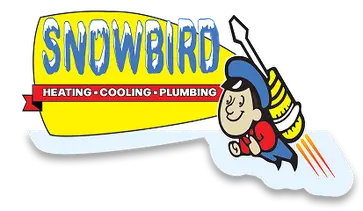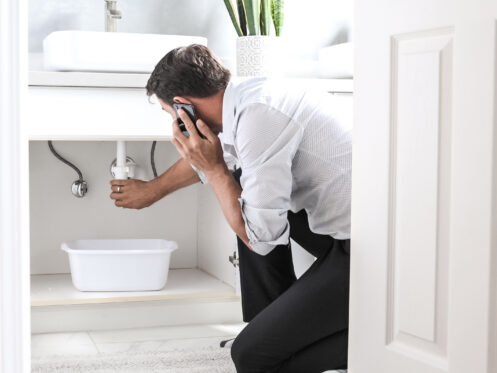A water leak can be incredibly frustrating to deal with. Fortunately, there are ways to spot and fix leaks before they cause significant damage. Learn more below.
How Leaks Affect Your Property
A water leak can ruin your house in many ways. The most noticeable signs include water stains on ceilings and walls. These stains can progress into more significant problems, like mold development. Over time, the mold may grow and release spores into the air. Depending on your sensitivity and the species of mold, this can pose a threat to your health.
As an added downside, leaks might compromise your home’s structural stability. Water seeping into the foundation may result in cracks, shifting, or settling. Ignoring this will lead to costly foundation repairs and a significant safety hazard. You should always remember that damage will worsen the longer leaks go unfixed.
Water leaks may harm your possessions in addition to the obvious structural damage. Exposed wood, electronics and vital papers are all particularly susceptible to water damage. Furthermore, leaks lead to water waste and increased water costs.
How to Spot Leaks
The sooner you spot water leaks, the easier it is to minimize damage and save money. The best way to find leaks early is to check for them on a regular basis.
Look for Water Stains
As previously mentioned, water stains on floors, walls and ceilings are the telltale signs of a leak. They usually appear yellow or brown. You might also notice peeling paint or wallpaper.
Check the Water Meter
Another way to find leaks is to check the water meter. To do this, you’ll need to start by turning off all water-using fixtures on the property, including refrigerators, dishwashers, washing machines, faucets and showers. Next, check the meter. If it continues to run, this means there’s a leak. This simple method is great for spotting hidden leaks behind walls and under floors.
Take Note of Musty Smells
Another red flag to watch for is a musty, damp odor. If the bathroom or kitchen has a musty or mildewy smell that won’t go away, there might be a leak under the sink, behind the refrigerator or around a shower enclosure. This type of hidden water damage can be costly to fix if you don’t catch it early.
Look at Your Water Bills
Another way to find leaks is to check your water bill. If your bill keeps going up despite no changes in your water-using habits, a leak might be to blame.
Do a Walk-Through
Doing a walk-through of your home each month can be incredibly helpful in finding leaks. Check under all sinks, near the washing machine and around toilets. These spots are where the leaks are most likely to occur.
What To Do When You Find a Leak
No matter how upsetting it is to discover a leak in your house, acting quickly will help limit the damage. Here are the steps you should take every time you find a leak.
Shut Off the Water Supply
First, you should shut off the home’s main water supply. This will stop the water flow and prevent the situation from worsening. You should also shut off the water supply to any affected appliances. There might be some residual water in the pipes. Shutting off the connected water supply will prevent additional leakage and minimize damage.
Shut Off the Electric
If the leak occurs near an electrical outlet or appliance, shut off the electricity. Water and electricity never mix well together. Turning off the electricity will help avoid potential hazards, like short circuits or shocks, while you deal with the leak.
Contain the Water
With the electricity and water turned off, you can now focus on containing the leak. You’ll probably need lots of towels and buckets to catch and hold the water. The goal is to keep it from spreading to other parts of the home and causing more damage.
Remove Furniture and Valuables
Next, remove any valuable items from the affected area. This includes furniture, electronics, important documents and sentimental items. Water can damage these items if it comes into contact with them. To prevent this, relocate them to a dry, safe spot until a plumber fixes the leak.
Call a Plumber
Now that you have contained the situation, it’s time to call a plumber. You might find it tempting to repair the leak yourself, but this is never a good idea. Water leaks usually have hidden causes, which can be difficult for the average person to diagnose. A plumber will have the skills, tools and expertise to spot the underlying problem and apply the best fix.
Dry the Affected Area
Another important thing to do after containing the situation is to dry the affected area as well as you can. You can use towels and fans to soak up as much moisture as possible. The faster you dry the area, the less structural damage your home will endure. Keeping the area dry with a dehumidifier is an excellent way to prevent mold and mildew growth.
Check for Structural Damage
Check the affected area for signs of damage. Look for clues like soft patches in the ceiling or walls, peeling paint, damaged flooring and water stains. Make a note of everything that needs fixing, and then provide that information to the plumber when they come.
Check Your Homeowners Insurance
If the leak causes severe damage, you might want to file a claim with your homeowners insurance. You’ll need to review your policy to see what it covers. If you’re eligible, an insurance specialist can walk you through the claims process. Be sure to document all damage with photos. Doing so may make the claims process much more manageable.
Speak With a Plumber for Leak-Prevention Advice
After a plumber fixes the leak, you should speak with them about preventing leaks in the future. Expert plumbers can determine the source of the leak and provide tailored advice to safeguard your plumbing system. They might recommend insulating pipes, replacing old fixtures and regular maintenance. They may also advise you on better controlling water pressure so that your appliances last longer. They can point out weak spots in your plumbing that need extra support. Fixing such weak points will save money in the long run.
Monitor for Mold
Another important thing to do after the plumber fixes the leak is to monitor the area for mold. If water is trapped in a hidden place, like a wall or crawl space, it can turn into a haven for mildew. Regularly checking the area where the leak occurred will ensure you spot any signs of mold growth early.
Here at Snowbird Heating & Cooling, we offer a wide range of solutions for water leaks. We also help homeowners with water heater installations, repiping, water treatment solutions and drain cleaning. All of our workers undergo extensive training to provide the best plumbing services possible.
Contact Snowbird Heating & Cooling today to book expert plumbing services in Auburndale, FL.



